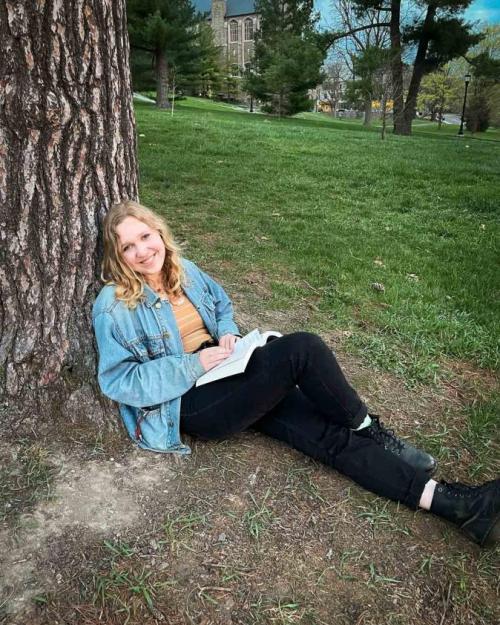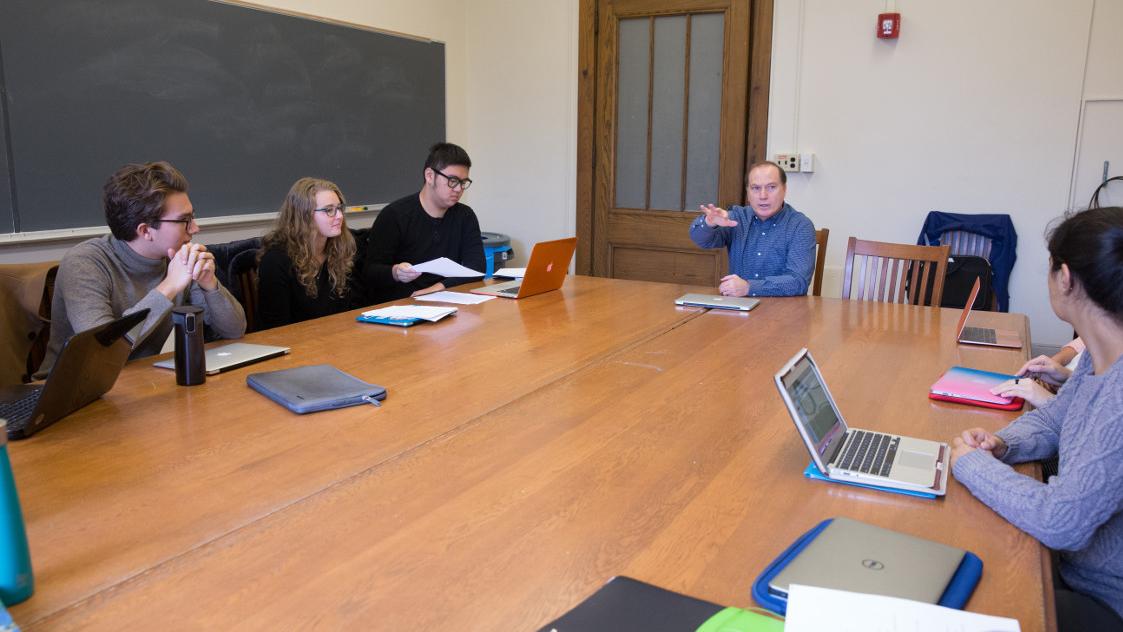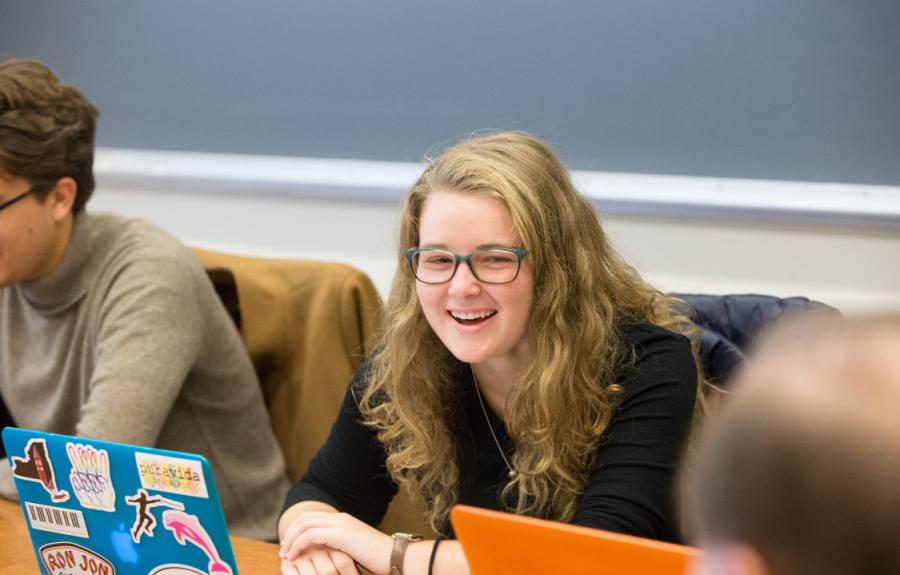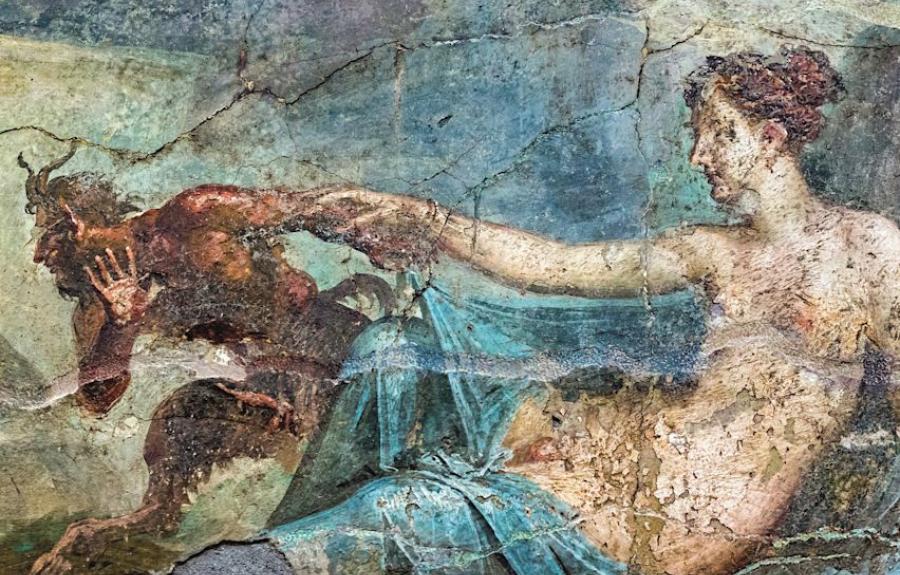

 Department Homepage
The College of Arts & Sciences
Department Homepage
The College of Arts & Sciences

The Department of Comparative Literature provides a broad range of courses in European as well as non-European literatures. Courses variously stress significant authors, themes, problems, styles, genres, historical periods, and theoretical perspectives. In cooperation with related departments in the humanities, the departmental offerings reflect current interdisciplinary approaches to literary study: hermeneutics, semiotics, deconstruction, cultural criticism, Marxism, reception aesthetics, feminism, psychoanalysis.

As a comparative literature major, you’ll gain a critical and historical perspective on world literature and cultures, with the choice of two tracks. If you want to emphasize literature in your course work, take the comparative literary studies track; if you’re interested in studying literature and theory by integrating rigorous work in film, video or other arts and media, take the literary, visual and media studies track. The major’s broad range of courses provides a critical and historical perspective on world literature and cultures.
The Comparative Literature Major emphasizes individuality and interdisciplinary study; as such, it can be helpful to understand how different students have chosen their courses and program of study. Take a look at some of our student profiles to get an idea of how Comparative Literature can work for you:

The graduate program in Comparative Literature emphasizes flexibility and creativity. Our students tend to thrive under Cornell's graduate field system. The program imposes no required courses, thus allowing the student maximal latitude in composing a program of study.
We understand "comparison" in a very generous sense and we encourage work that is theoretical, anthropological, critical, or historical as well as grounded in the study of particular cultural or linguistic traditions and in different media. Normally students to have the ability to do advanced work in at least two languages as well as having reading knowledge of a third language. Recently, students and faculty have worked reading literature with trauma theory, cognitive science, environmental humanities, new media studies, and many more.

Truth In the Late Foucault: Antiquity, Sexuality, and Psychoanalysis offers the first full treatment of truth as a core philosophical concept in Foucault’s late work on the history of sexuality, the ancient world, and the early church.
“Arash Shokrisaravi continues our interrogation of the sites of truth by probing Foucault’s relation to Heidegger, Gadamer, and the hermeneutic tradition, in this volume. The question of truth is central to Plato’s reading of the cave, but what kind of truth is it and is there only one? The Myth of the Cave is crucial to Heidegger’s understanding of the transformation of alétheia from the Presocratics to the dawn of Platonism and metaphysics. The importance of Heidegger for Foucault is, of course, well known. Shokrisaravi investigates Heidegger's understanding of the cave, compares this understanding to Foucault's concept of truth, and then explores their relation to Erlebnis or "experience" as derived from Gadamer. The central questions this chapter poses are: can the genealogist have access to a truth beyond shadows and does allegory as a device provide the possibility of a hermeneutic encounter with the occupants of the cave and its own externality? Moreover, where then does the genealogist sit and what is his experience?” (Paul Allen Miller 2024: 5)